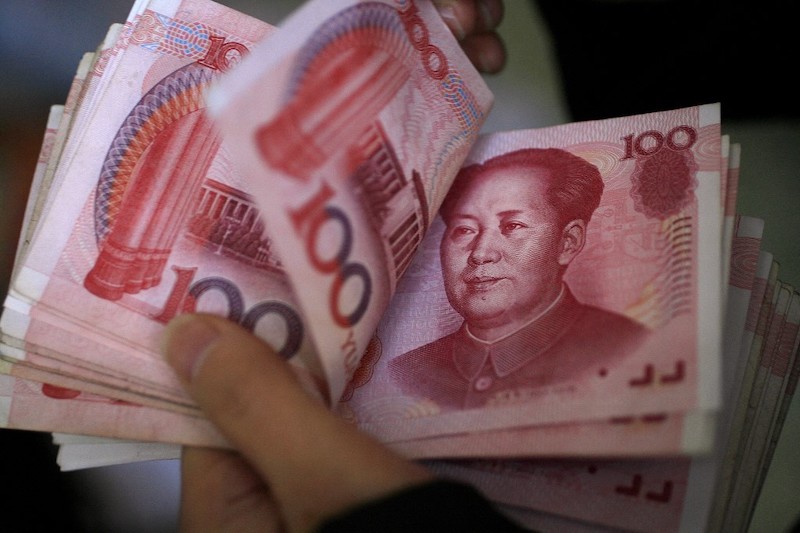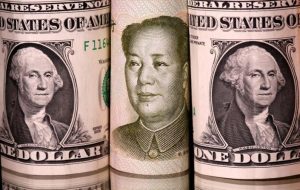China’s major state-owned banks have been intensifying their efforts in the currency market this week, sources claim, buying the yuan and aiding its recovery against a weaker US dollar.
The big banks, which sometimes act on behalf of Chinese monetary authorities, have in the past year often sold dollars to slow the yuan’s decline.
But their continued yuan-buying activity this week while the currency was already rising has surprised some observers.
The yuan has gained 2% in the past week, to stand at levels of around 7.13 to the dollar, its highest in nearly four months.
Also on AF: OpenAI Investors Weigh Legal Options Amid Fears Of Collapse
The sources said the state banks seemed to be following their usual combination of swaps and spot market activity, and were seen exchanging yuan for dollars in the onshore swap market and selling those dollars in the spot currency market.
Their action over the past week came amid broad dollar weakness. The dollar index, which measures the currency’s value against major trading partners, has retreated more than 3% in November, as US yields succumb to signs of a peak in Federal Reserve monetary tightening.
Some market participants said state banks might be trying to speed the yuan’s gains and spur exporters to convert more of their FX receipts into yuan. The Chinese currency is still down more than 3% against the dollar this year.
The selling of dollars by state banks caused the onshore spot yuan to briefly touch 7.1296 per dollar, firmer than its daily official guidance for the first time in four months.
The People’s Bank of China (PBOC) has also been lowering the dollar-yuan daily fixing rate this week. On Tuesday, it set the midpoint at a 3-1/2-month low of 7.1406 per dollar.
“It is surprising to see they keep lowering the fixing at this rate. To me, it looks like they are doing preparatory work ahead of a policy rate cut,” said Kiyong Seong, lead Asia macro strategist at Societe Generale.
“When the external environment is favourable, they appear to strengthen the CNY as much as possible.”
China’s Uneven Recovery
Recent data shows the recovery in the world’s second-largest economy remains uneven, with industrial output and retail sales surprising on the upside in October, while manufacturing activity and consumer prices continued to fall.
While the economy still needs more policy stimulus, analysts say further monetary easing could add downside pressure on the Chinese currency, given the wide differential between interest rates in China and other economies, particularly the United States.
The PBOC has been injecting cash through its medium-term lending facility loans into the banking system, but has of late kept the rate on those loans unchanged.
“Some volatilities around this level could be likely at this time, unless there are more further significant downside dollar moves or additional major sentiment positive events,” said Zhi Xiaojia, chief China economist at Credit Agricole.
“Indeed, the yield gap remains quite wide, and we are still expecting more policy easing, including PBOC rate and reserve requirement ratio cut.”
Zhi said she was “relatively constructive” on the yuan into the end of the year and 2024.
- Reuters with additional editing by Sean O’Meara
Read more:
China-Saudi Sign $7bn Currency Swap Deal in Fresh Hit to Dollar
Chinese Yuan Passes Euro to be the Second Top Trade Currency
China Boosts Liquidity Support But Weak Yuan Fears Weigh
Yuan Dives to Lowest Level in 16 Years as Recovery Wanes
























